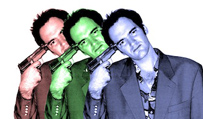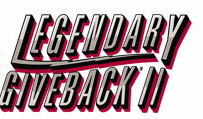Verses From a Tijuana Bible
 By Dan Kimpel
By Dan Kimpel
In the hands of Dustin Welch a banjo possesses the ferocious firepower to confront abrasive electric guitars and hard-hitting staccato snares. “It can do a lot more than the three-finger bluegrass type stuff,” says Welch. “It can have a pretty evil sound if you want it to.” On his new CD, Tijuana Bible, Welch, (who also plays acoustic and gut string guitar on the tracks), was joined in a home studio in Austin, TX, by a tight coterie of sympathetic players who injected acoustic authenticity and razor-edged electricity in only three days of live sessions with minimal over-dubs.
Welch’s sound absorbs elements of his recent past, when he was a banjoist and resonator slide guitarist with a Celtic punk rock band the Scotch Greens. “That whole punk rock world I was playing in was so interesting to me,” he says. “I had never listened to that kind of stuff, and sight unseen, the band hired me to come out and play with them.”
With his solo debut, Whiskey Priest, Welch threw down his gauntlet of searing song craft and wild-eyed fervor. On his second CD, he solidifies his role as a facile storyteller with a profound gift for inhabiting characters: the preposterous braggart in “Jolly Johnny Junker” and his grizzled kinsman in “Lost at Sea” who rants “Somewhere God is in a casket/The dogs are all circling around.”
A voracious reader, Welch draws from a far-flung repository of literary inspirations. The intimate “St. Lucy’s Eyes” for example, references the sacred mysticism of a Christian martyr from the third century who is often depicted holding her eyes on a platter. “They tried to to kill her by drowning, stoning and burning her. Finally they gouged her eyes out and she lost her power,” he explains.
“Party Girl” is illuminated in flickering, impressionistic freeze frames that make it a natural for film and television usages, something Welch ––who has friends in the film community––is quite interested in. “I intentionally tried to write that differently,” he says. “It is primarily imagery, so it works with the visual element. With some songs you’re telling a story or talking about internal conflicts. ‘Party Girl’ is pictures.”
Welch grew up around consummate songwriters. His father Kevin is revered in what would eventually evolve as the Americana genre. In the mid-‘90s, set adrift from their major label deals, he and a group of singer-songwriters founded an independent label, Dead Reckoning Records. Dustin, also an indie artist, continues this tradition with Super Rooster Records.
Dustin Welch was raised in Nashville, TN. “The cool thing about being able to grow up around people who were stars was that I’d get to know them on the personal side first. They were family friends.
“As I got older” he continues, “I appreciated what they did, but it took a while to realize how special that was. Getting to know them more on a personal level has allowed me to understand that being a big star is not what makes you a good musician or songwriter. I could see the work ethic. In Nashville, it’s nine-to-five business in a lot of ways.”
For the past year and a half, Welch has volunteered for the Texas chapter of the Soldier Songs & Voices program, a national organization he helped found. Giving voice through music to returning veterans from the wars in Afghanistan and Iraq is the mission. “When they work on songs, that is all they are thinking about,” he says. “It gives them another outlet.”
He says the experience is rewarding and humbling. “No matter how many songs you’re writing about hope and inspiration, you’re still getting up in front of an audience every night saying,’ Hey people pay attention to me.’ I know how to write songs and I wanted to see if that could help these veterans.”
It was imperative for Welch to commit Tijuana Bible to audio, both as a reason for touring and to chronicle of the experiences and emotions that enrich his songs. “It’s an actual recording of a period of my life,” he confirms. “That’s why Thomas Edison called it ‘a record.’”
Contact Brian O'Neal or Cary Baker at Conqueroo, http://conqueroo.com













